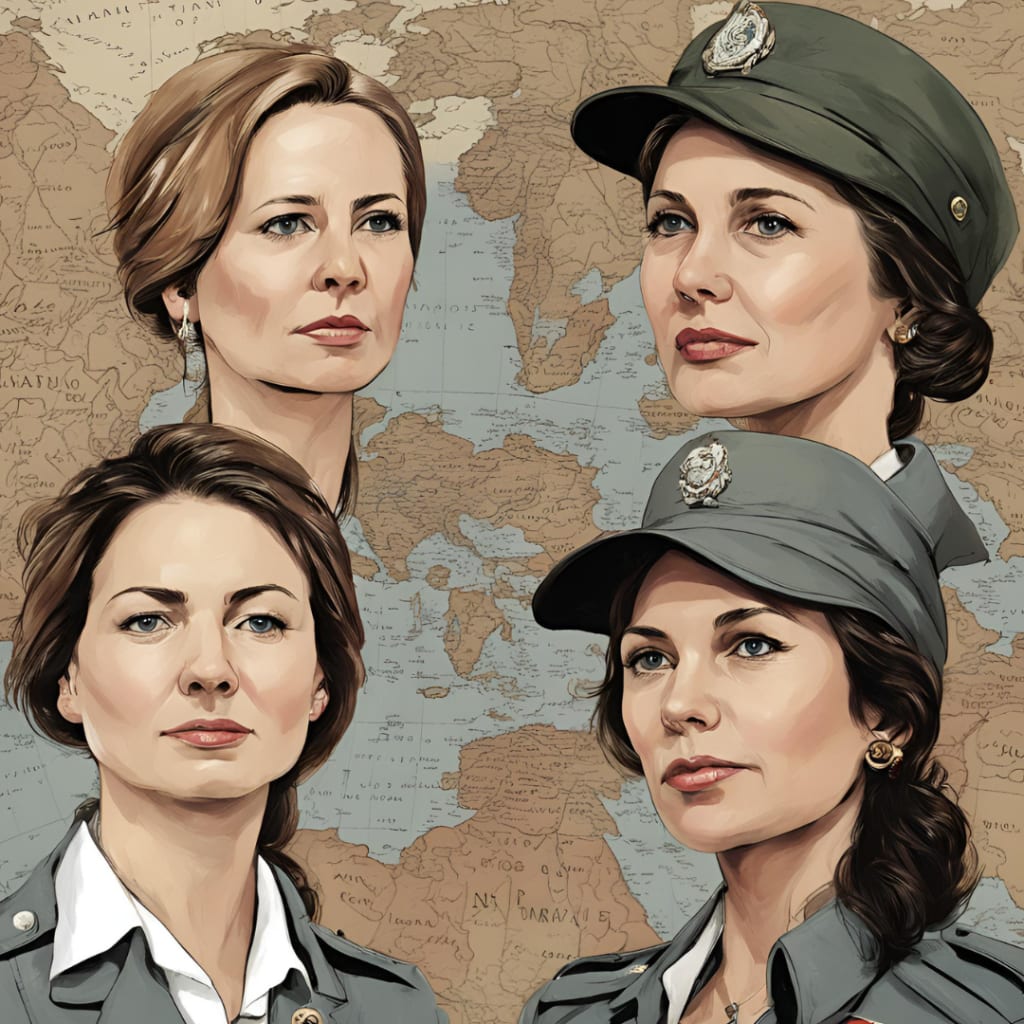Reimagining Geopolitical Landscape: A More Gendered Approach
Women's assertion in a male-dominated geopolitical world

In her book Bananas, Beaches and Bases, Cynthia Enloe suggests, "If you study war, you can't avoid studying women." Similarly, if one studies broader geopolitical aspects, the role of women cannot be ignored.
History bears testimony to the fact that the reigns of the geopolitical horse have been controlled by the “strongmen” for quite a long time. It was only in the 19th century that women started voicing their concerns demanding equality in the social and political spheres. Figures like Lucretia Mott, Elizabeth Cady Stanton, and Susan B. Anthony played pivotal roles in advocating for women’s suffrage and greater political participation. Yet, women are underrepresented in formal diplomatic and foreign policy roles.
Research shows that peace processes that are male-dominated are more likely to fail in the long term. The 2018 UN Women Report shed light that between 1992-2018, women comprised 13% of negotiators and 3% of mediators in major peace processes worldwide. A poignant example that substantiates how the meaningful involvement of women can positively impact peace processes and sustainable conflict resolution is the case of Liberia's peace negotiations ending the Second Liberian Civil War.
Liberia was reeling under wars between 1989-2003 that took around 25000 lives and displaced millions of people. The Peace Talks appeared to have no effect and the hostilities between the warring factions only worsened. A major intervention came from the Liberian women's peace movement led by social workers like Leymah Gbowee and trauma counsellors like Asha Gbowee. These women staged “sex strikes” at the peace talks venue demanding an end to violence.
Their demonstrations put not only political but moral pressure on the almost male-dominated peace delegation. The women insisted on the inclusion of all belligerents in talks and advocated for governance reforms and transitional justice measures to address root causes. Ultimately, the women's activism led to the warring parties signing the 2003 Comprehensive Peace Agreement. This paved the way for UN peacekeepers' deployment and Liberia's first post-war democratic elections in 2005, won by Africa's first elected female head of state, Ellen Johnson Sirleaf.
A study by the Journal of Peace Research analysed 182 signed peace agreements from 1989-2012 and found that the agreements were 64% less likely to fail with the increased involvement and participation of women in the negotiation process. Libera is a case in point that clearly shows the increased role of women representatives in monitoring & implementation stands in sharp contrast to Yemen where women negotiators were insignificant.
Gender lies at the heart of many geopolitical fault lines and is therefore crucial in understanding issues such as security, conflict, migration, development, climate change and resource access to name a few. A gendered analysis of geopolitics shows how sustained patterns of patriarchal social structures, discriminatory laws and inequitable norms foster human rights abuses, perpetuate cycles of violence and hinder women’s participation as agents of change.
As political analyst J. Ann Tickner says, "You can't understand world politics if you disregard or ignore half the world's population." Developing a gendered geopolitical framework is essential for an inclusive environment centred on global cooperation, human security and conflict prevention. Gender equality is crucial for economic growth, political stability, and adaptability to disasters such as the COVID-19 pandemic and war. Integrating gender into policy is recognizing women’s empowerment not only as a rights-based issue but as a strategic national strength. Inclusive Policymaking harnesses all the talents and expertise within a nation to solve inter-generational complexities that go beyond time.
The analysis of geopolitics would benefit from a more deliberate inclusion of gender, however, it should be seen as one approach among many that might help to construct holistic and inclusive frameworks. The aim is to develop frameworks that take into account the nexus between sex and other identities or power relations. On this basis, policies and processes can then be developed which utilize the talents of both female and male populations to negotiate lasting solutions that reflect the complex natures of their societies.
About the Creator
Shreshtha Gupta
A feminist who very much believes personal is international. Passionate about social causes and the role of women. Loves to read, write and travel.
Reader insights
Outstanding
Excellent work. Looking forward to reading more!
Top insight
Expert insights and opinions
Arguments were carefully researched and presented






Comments
There are no comments for this story
Be the first to respond and start the conversation.